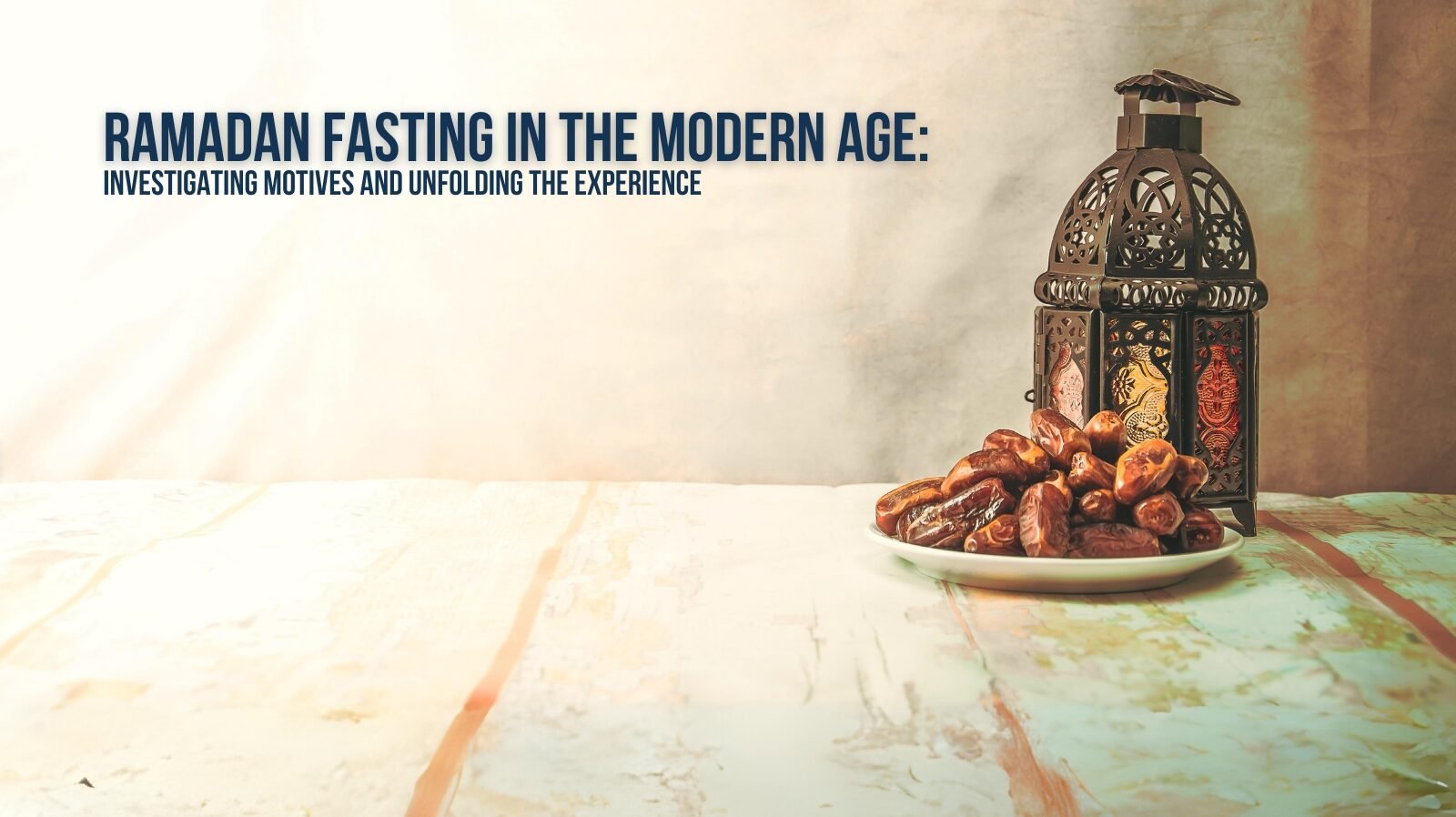
Ramadan Fasting in the Modern Age: Investigating Motives and Unfolding the Experience
INTRODUCTION
For millions of people worldwide, the holy month of Ramadan is deeply significant. During this period, people fast, pray, and contemplate. Let’s explore the reasons behind the Ramadan fast and how it affects people’s lives in the modern world.
Understanding Ramadan Fasting Today
Ramadan fasting is not only a religious obligation but also a time of deep spiritual reflection and self-discipline. Muslims believe that during Ramadan, the Holy Quran was revealed to Prophet Muhammad, making it a sacred month. Fasting helps individuals cultivate empathy, develop self-control, and foster a sense of community by sharing in the struggles of those less fortunate. Muslims abstain from food, drink, and other pleasures from dawn till dusk throughout Ramadan. It’s a spiritual journey rather than only being hungry (BaHammam, 2010). Muslims who fast are better able to relate to God and the less fortunate (Ghazanfari et al., 2014).
Motivations behind Fasting

Religious Connection:
As a sign of dedication and compliance to Islamic beliefs, many people fast during Ramadan (Ali, 2016). It is an act of worship and thanksgiving to Allah.

Personal Growth:
Ramadan offers a chance for personal development and renewal (Kamal & Abdalla, 2017). Fasting encourages self-discipline, mindfulness, and a fresh start.

Health Benefits:
Research shows that Ramadan fasting can have positive effects on health, like weight management and improved metabolism (Faris & Jahrami, 2015). It’s more than a spiritual practice; it can contribute to overall well-being.

Community Bonding:
During Ramadan, people gather together. Muslims develop empathy and unity via the shared experience of fasting (Lewis & Ahmed, 2015). It improves relationships to the community and family.
Understanding Motivation Today

Setting Goals:
Muslims establish goals to live better lifestyles, fulfill their religious obligations, and advance spiritually during Ramadan (Austin & Vancouver, 1996). It’s about aiming for connection and self-improvement.

Motivation Dynamics:
There are various reasons why people fast, and these factors influence their experiences (Osman & Al-Attiyah, 2016). Fasting typically has greater significance for those who are motivated by internal factors, such as spiritual development (Ryan & Deci, 2000).
CONCLUSION
Ramadan fasting is more than a religious tradition; it’s a modern journey of self-discovery, health, and community. As the world evolves, Ramadan fasting adapts to the modern era, embracing technological advancements while preserving deep-rooted traditions. Modern Ramadan fasting experiences bring together faith, community, and personal growth. By navigating social obligations, considering health, and merging faith with the demands of contemporary life, individuals can make the most of this holy month, fostering unity and personal enlightenment. As Muslims observe Ramadan in today’s world, let’s appreciate its significance in fostering personal growth, connection, and well-being.
REFERENCES
Ali, S. H. (2016). The Islamic Tradition of Fasting and Its Role in Mental Health. Journal of Religion and Health, 55(6), 2129–2141.
BaHammam, A. (2010). Effect of fasting during Ramadan on sleep architecture, daytime sleepiness and sleep pattern. Sleep and Biological Rhythms, 8(2), 95–101.
Faris, M. A. E., & Jahrami, H. A. (2015). Impact of Ramadan intermittent fasting on oxidative stress measured by urinary 15-F2t-isoprostane. Journal of Nutrition, Metabolism and Cardiovascular Diseases, 25(6), 641–646.
Ghazanfari, Z., Niknami, S., Ghofranipour, F., & Hajizadeh, E. (2014). Determinants of intention to abstain from premarital sex among Iranian adolescents: Using the theory of planned behavior. BMC Public Health, 14(1), 1–9.
Kamal, N. N., & Abdalla, S. M. (2017). Ramadan fasting: A new perspective. Journal of the American College of Nutrition, 36(1), 8–13.
Lewis, C. A., & Ahmed, A. M. (2015). Ramadan Fasting: Characteristics and Implications. Journal of the American College of Nutrition, 34(1), 16–23.
Osman, M., & Al-Attiyah, A. A. (2016). Motivation and Reasons for Fasting during the Month of Ramadan in Qatar. Journal of Religion and Health, 55(3), 927–942.
PREPARED BY
ESSAM ABI ROUSTOM
HERC’s Associate


